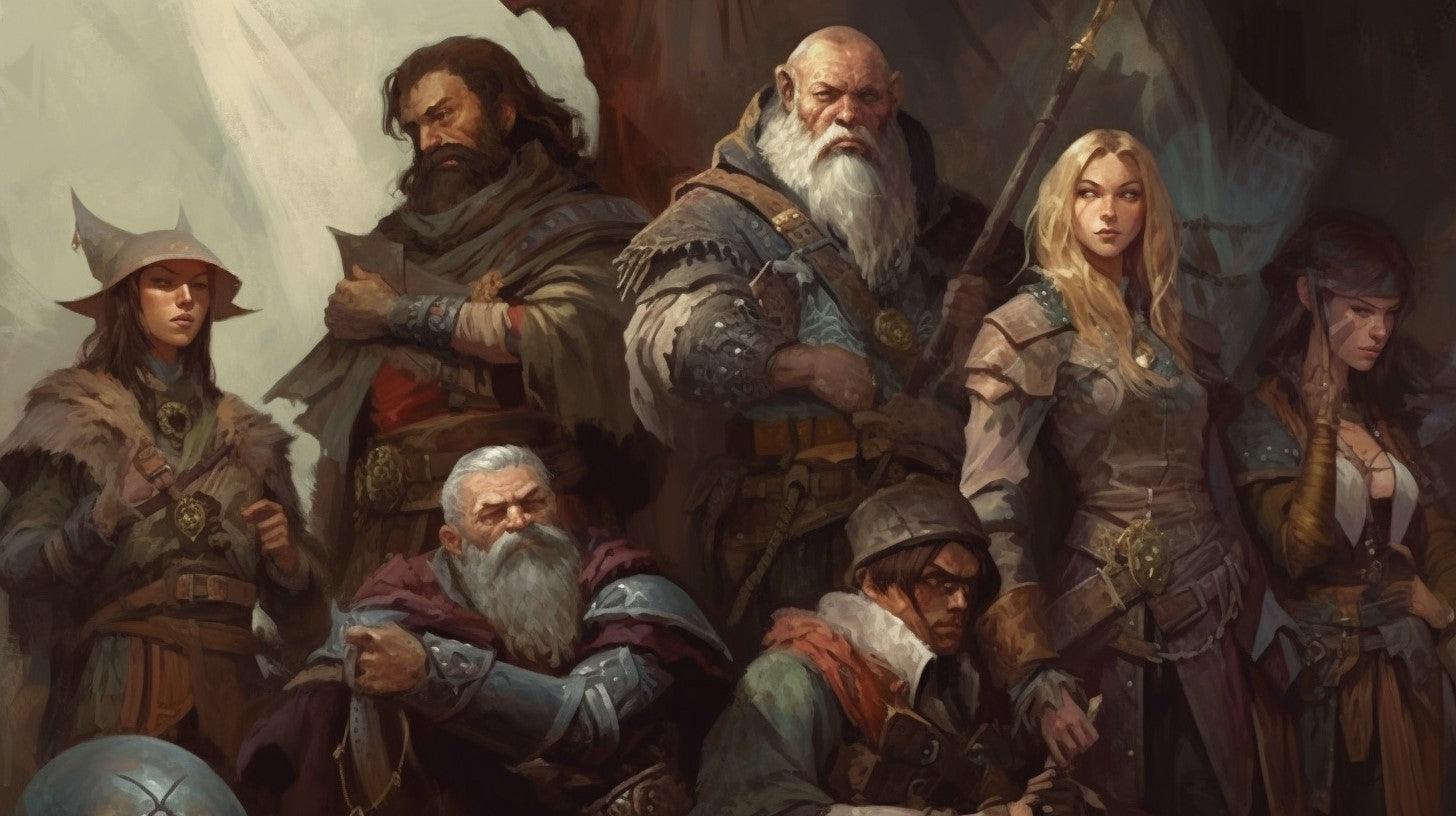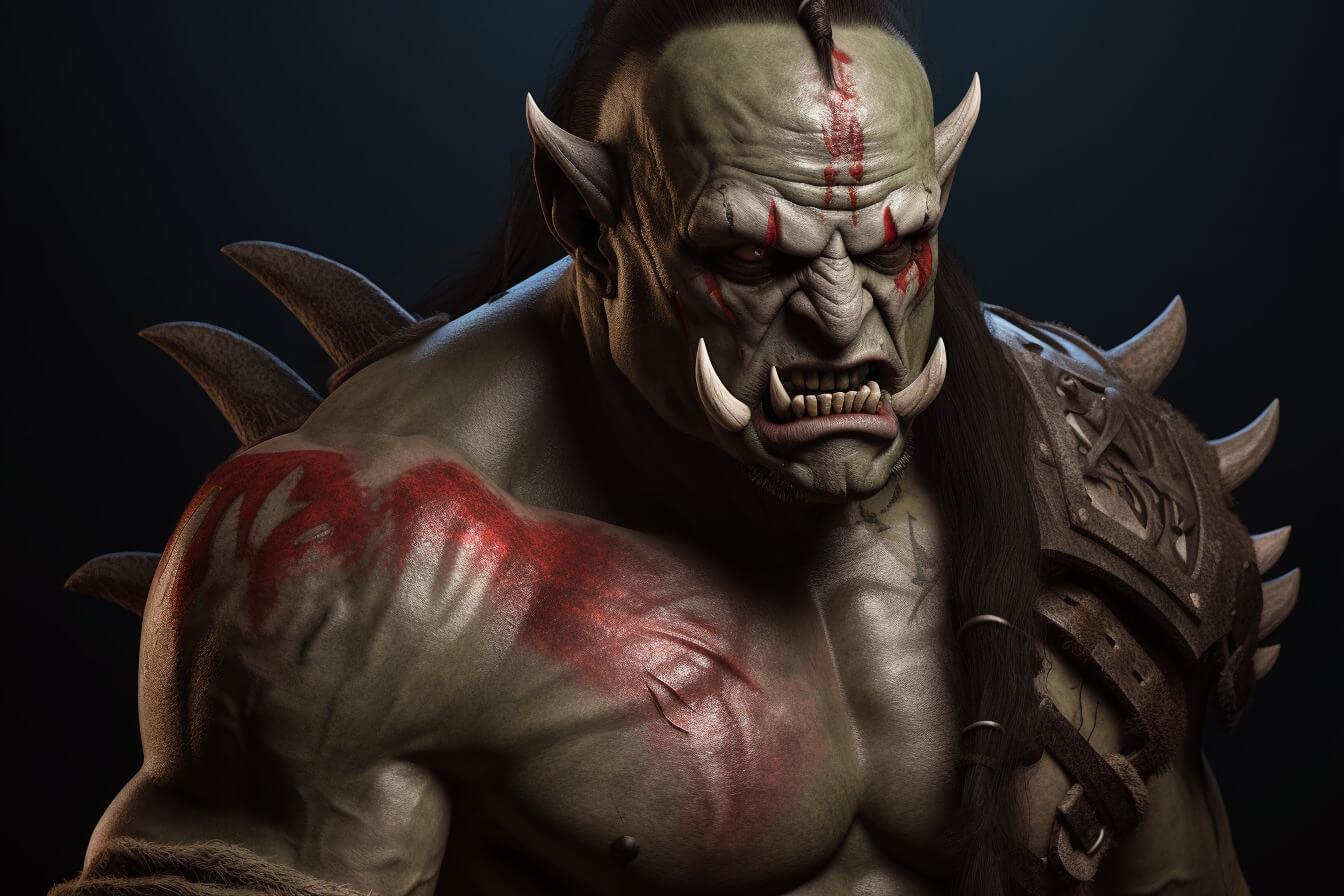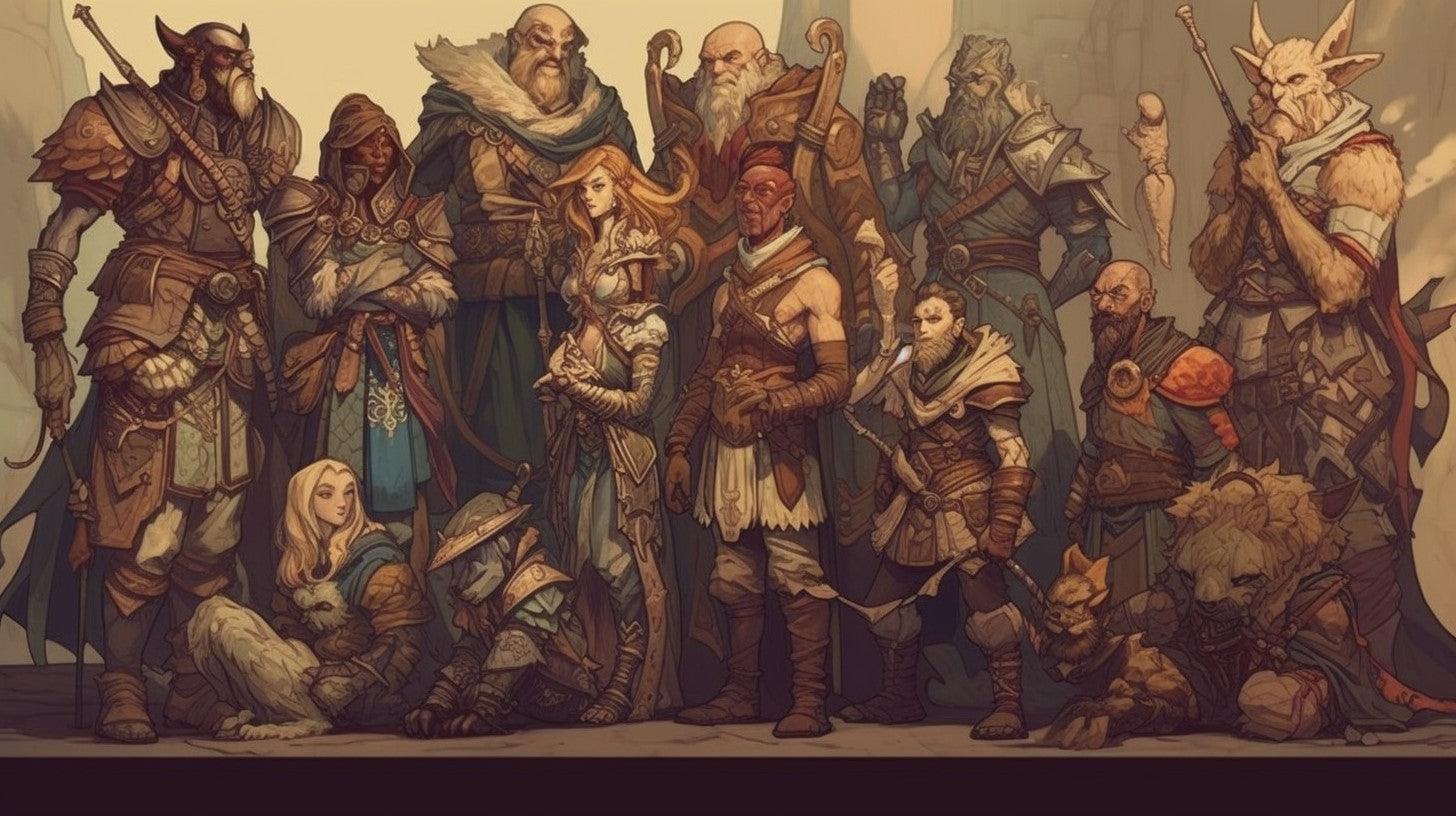Introduction:
Dungeons & Dragons (D&D) offers players a diverse array of classes to choose from, each with its unique abilities, playstyles, and roles within a party. With so many options, it can be challenging for both new and experienced players to find the perfect fit. In this comprehensive guide, we'll explore each of the 13 core classes in D&D 5th Edition, examining their strengths, weaknesses, and gameplay styles to help you choose the right class for your next adventure.
Overview of D&D Classes
Before diving into the details of each class, it's essential to understand that D&D classes can be broadly categorized into four main roles: frontline combatants, spellcasters, skill experts, and support characters. Some classes excel in multiple roles, while others are more specialized. Keep in mind that there's no "best" class; the ideal choice depends on your personal preferences and playstyle.
Class Breakdown
In this section, we'll examine each of the 13 core classes in D&D 5th Edition, highlighting their primary abilities, combat styles, and roles in a party.
Barbarian:
Barbarians are fierce warriors with incredible strength and durability. They excel as frontline combatants, using their rage ability to deal massive damage and shrug off injuries. Barbarians are perfect for players who enjoy a straightforward, high-damage playstyle with a focus on melee combat.
Bard:
Bards are versatile spellcasters who harness the power of music and performance to inspire their allies and hinder their foes. They can fill a wide range of roles, from support and healing to skill expertise and crowd control. Bards are ideal for players who enjoy flexibility, creativity, and the ability to adapt to various situations.
Cleric:
Clerics are divine spellcasters who channel the power of their chosen deity. They excel in support and healing roles, but also have access to a wide range of spells and abilities that allow them to deal damage and control the battlefield. Clerics are perfect for players who enjoy taking on a supportive role and the versatility of a divine spellcaster.
Druid:
Druids are nature-focused spellcasters with a diverse array of abilities, including shape-shifting, elemental magic, and summoning. They can fill various roles, from spellcasting and melee combat to healing and support. Druids are ideal for players who appreciate versatility, a connection to nature, and the unique gameplay mechanics of wild shape.
Fighter:
Fighters are skilled warriors who excel in both ranged and melee combat. They possess a wide range of weapon and armor proficiencies and gain numerous combat-oriented abilities as they level up. Fighters are perfect for players who enjoy a tactical, combat-focused playstyle with a variety of options for customization.
Monk:
Monks are agile martial artists who harness their inner ki to perform incredible feats of speed, strength, and agility. They excel in mobility and melee combat, using their unarmed strikes and unique abilities to control the battlefield. Monks are ideal for players who enjoy a fast-paced, acrobatic playstyle with a touch of mysticism.
Paladin:
Paladins are holy warriors who combine divine spellcasting with martial prowess. They excel in frontline combat and support roles, using their auras, smite abilities, and healing magic to protect and empower their allies. Paladins are perfect for players who enjoy a mix of martial and magical abilities with a strong thematic focus on righteousness and devotion.
Ranger:
Rangers are skilled hunters and trackers who excel in both ranged and melee combat. They possess unique abilities related to exploration, survival, and favored enemies, making them invaluable assets in wilderness settings. Rangers are ideal for players who enjoy a blend of martial and magical abilities with an emphasis on tracking, survival, and favored terrains.
Rogue:
Rogues are cunning and resourceful experts in stealth, deception, and infiltration. They excel in skill-based roles and can deal massive damage with their sneak attack ability. Rogues are perfect for players who enjoy a stealthy, tactical playstyle with an emphasis on evasion, infiltration, and outwitting their enemies.
Sorcerer:
Sorcerers are innate spellcasters who draw power from their bloodlines or unique origins. They have fewer spells known than other spellcasters but can cast more spells per day and possess unique metamagic abilities to augment their spells. Sorcerers are ideal for players who enjoy a more spontaneous, flexible approach to spellcasting with an emphasis on customization and unique abilities.
Warlock:
Warlocks are spellcasters who gain power through pacts with otherworldly patrons. They possess fewer spell slots than other spellcasters but have unique abilities called invocations that grant them a wide range of magical effects. Warlocks are perfect for players who enjoy a more focused, thematic approach to spellcasting with an emphasis on roleplaying and customization.
Wizard:
Wizards are the quintessential arcane spellcasters, possessing vast knowledge of spells and magical theory. They have access to the largest spell list in the game and can learn and prepare new spells through their spellbooks. Wizards are ideal for players who enjoy a highly versatile, intellectual approach to spellcasting with an emphasis on planning and strategy.
Artificer:
Artificers are magical tinkerers who specialize in creating magical items and constructs. They can infuse items with magical properties, create eldritch cannons, and even build powerful mechanical companions. Artificers are perfect for players who enjoy a blend of magic and technology with an emphasis on creativity, crafting, and support roles.
Choosing the Right Class
Now that we've explored each of the core classes in D&D, how can you decide which one is right for you? Consider the following factors when making your choice:
Playstyle:
Think about your preferred playstyle and how it aligns with the various classes. Do you enjoy dealing damage, supporting your allies, or controlling the battlefield? Are you drawn to martial prowess or magical abilities? Consider how each class's gameplay mechanics and roles fit your preferences.
Role in the Party:
Consider the composition of your adventuring party and the roles that may be needed. Is your party lacking a healer, a frontline combatant, or a skill expert? Choosing a class that fills a gap in your party's composition can lead to a more balanced and enjoyable experience for everyone involved.
Theme and Flavor:
Think about the thematic elements and flavor that appeal to you. Are you drawn to the righteous devotion of a paladin or the cunning trickery of a rogue? Do you prefer the connection to nature of a druid or the arcane knowledge of a wizard? The narrative and roleplaying aspects of your chosen class can significantly enhance your enjoyment of the game.
Customization and Complexity:
Consider the level of customization and complexity you prefer in a class. Some classes, like the fighter and the sorcerer, offer a high degree of customization through their subclasses, feats, and abilities. Others, like the barbarian and the monk, have more straightforward gameplay mechanics. Finding a class that matches your desired level of complexity and customization can lead to a more satisfying gameplay experience.
Tips for New Players
For new players who may still be feeling overwhelmed by the wealth of options available, we've compiled a few tips to help make the class selection process a little easier.
Start with Simpler Classes:
If you're new to D&D, it can be helpful to start with a simpler class that has more straightforward mechanics. Classes like the barbarian, fighter, and rogue are great options for beginners, as they have a more focused set of abilities and a more accessible playstyle.
Consult with Your Dungeon Master (DM):
Your DM can be an invaluable resource when choosing your character's class. They can offer guidance on which classes may fit well with the campaign setting and the existing party composition, as well as provide insight into the mechanics and roleplaying aspects of each class.
Try a One-Shot or Short Campaign:
Before committing to a long-term campaign, consider participating in a one-shot or short campaign to try out different classes and find the one that resonates with you the most. This can be a great way to gain firsthand experience with the mechanics and roleplaying aspects of various classes without the pressure of a long-term commitment.
Embrace Change:
Remember that it's okay to change your mind or try a new class if you find that your initial choice isn't the perfect fit. D&D is all about having fun and enjoying the experience, so don't be afraid to switch things up if you feel drawn to a different class.
Conclusion:
With so many exciting and diverse classes to choose from, finding the perfect fit for your D&D character can be both thrilling and challenging. By considering your playstyle, the role you want to fill in your party, the thematic elements that appeal to you, and the level of customization and complexity you desire, you can find the class that will bring your character to life. And remember, the most important factor is to choose a class that you'll enjoy playing, so take your time, explore your options, and have fun with your decision!



